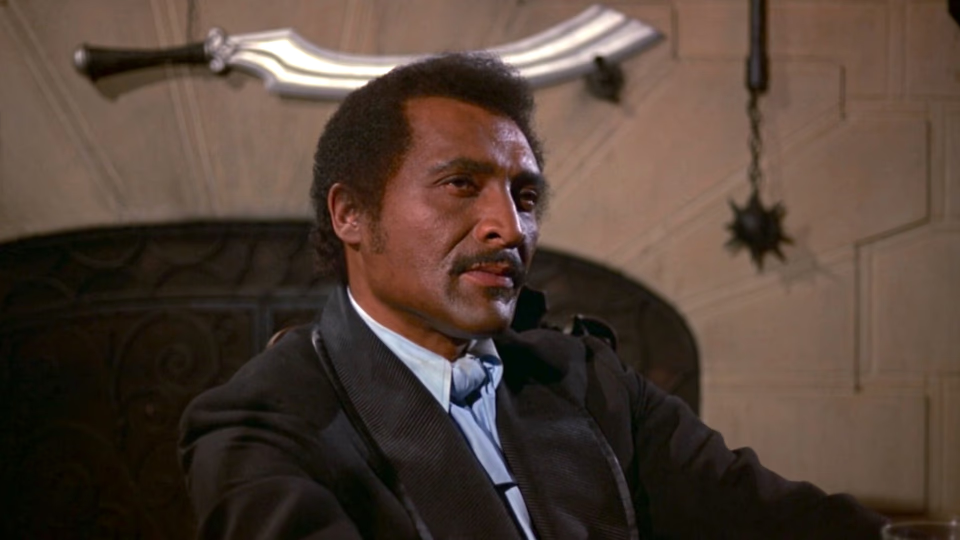Blacula

Free after centuries of imprisonment, an African prince (William Marshall) bitten by Dracula seeks the reincarnation of his lost love in 1972 Los Angeles.
Blacula is an oft overlooked but significant entry in the Dracula mythos as it marks the first film instance of the now commmon plot point where the female lead is Dracula’s reincarnated lost love. Subsequent films ran with this, notably Dan Curtis’ Dracula, Love at First Bite, and Bram Stoker’s Dracula, but, I think, Blacula did it first.
Cultural milestone aside, the film entertains. Sure, the budget is clearly non-existent, and most of the performances are stilted at best; but how can you dislike Blacula? The title is a stroke of marketing genius, and William Marshall is a lot of fun in the titular role, even if it’s never made clear just why his sideburns go crazy whenever he shows his fangs. If the film were just a little more intense, it might have been something special.
Blacula isn’t so much a horror film as a drama, and unfortunately, that’s its undoing. With a horror film, the pure experience of it can overcome things like a low budget and shoddy acting—see the original Night of the Living Dead—but in a drama there’s little to distract from these shortcomings.
Blacula simply isn’t visceral enough. As an exploitation movie, they should have thrown in more gore and nudity, but as is, the film’s surprisingly tame, with the character of Blacula lacking the edge inherit in the film’s premise. Where we want a suave, menacing anti-hero, we get a reluctant monster. In the end, a little more bite—pun intended—would have gone a long way toward making Blacula a better film.